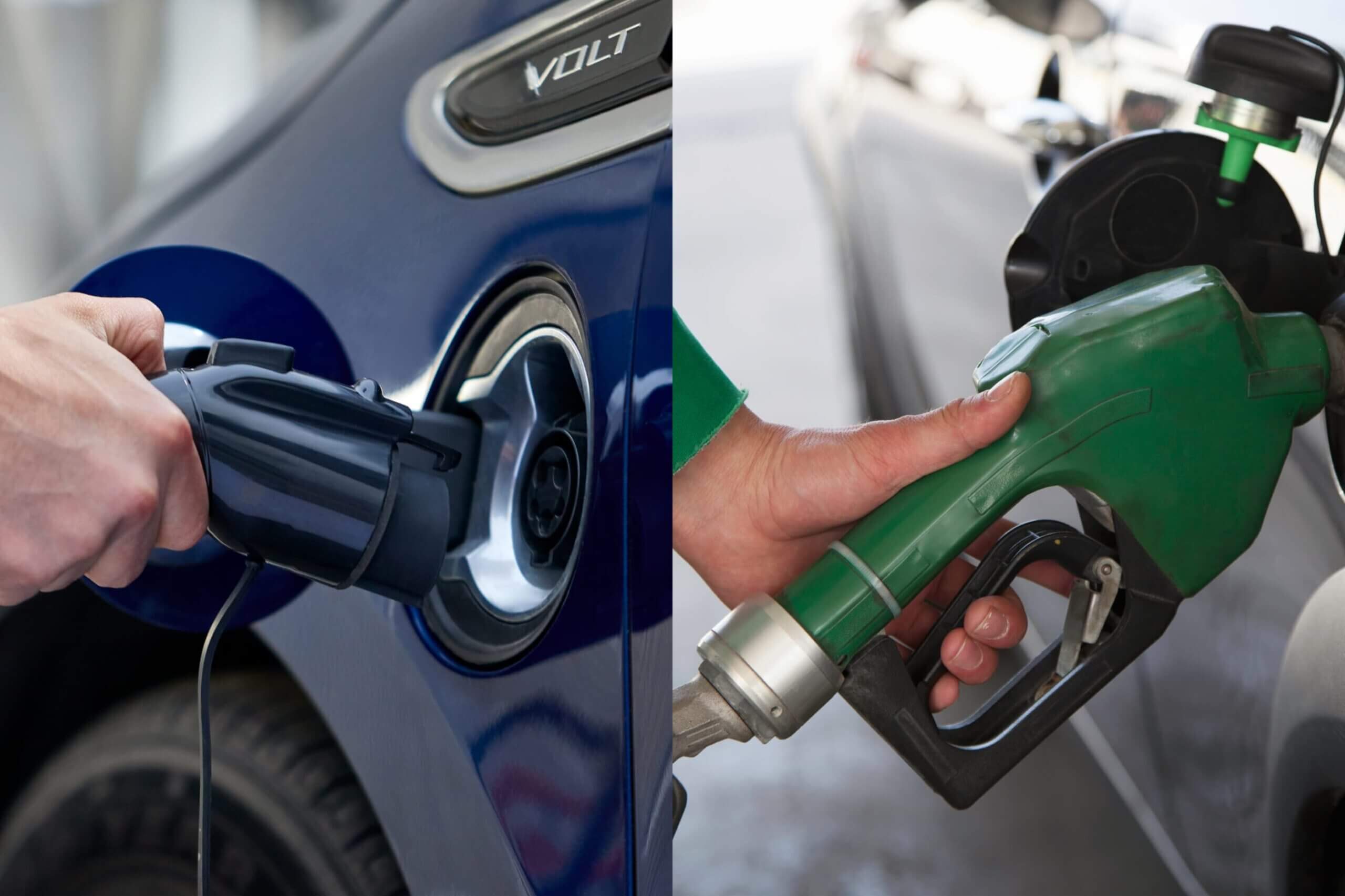While we have previously covered all the ways an electric vehicle can save you money when compared to a traditional internal combustion engine (ICE) vehicle, there are additional costs and benefits of purchasing in electric cars vs. conventional vehicles. Whether you’re looking to lower your carbon footprint or you’re interested in finding the best vehicle for your needs, we’ve broken down the most common differences between conventional cars vs. electric cars.
Comparing Conventional Cars vs. Electric Cars
Easier Maintenance
Obviously, vehicles of any sort require maintenance and upkeep. However, when it comes to conventional cars vs. electric cars, conventional ICE vehicles end up needing more maintenance over time for a few reasons.
First, the mechanical parts within an internal combustion engine and the drivetrains require lubrication to keep them from creating friction as the pieces rub against each other. For this reason, engines require oil changes every 3,000 to 12,000 miles depending on the vehicle, and the drivetrains should be serviced with new fluids every couple of years. Even if you don’t drive often, these fluids need to be changed out because they can break down over time.
Then there’s buildup that can occur because of the nature of the fluids themselves. Debris in gasoline can coat fuel injectors, decreasing their ability to deliver gas to the engine. This can lead to poor engine performance and the need to clean or replace the fuel injectors.
This can be one of the leading costs and benefits of investing in electric cars vs. conventional vehicles, as the regular services required by ICE vehicles aren’t required in electric vehicles. Because EVs don’t use gasoline or have an internal combustion engine, they don’t have fuel injectors and don’t need regular oil changes. EVs typically have about two dozen fewer moving parts than an ICE vehicle, decreasing the amount of lubrication needed throughout the car. This doesn’t only save money—it also saves you time. No more realizing you’re overdue for an oil change and wondering how long you can go before you absolutely need to make time for the shop.
Air Quality
Similarly, electric cars have shown to have a positive impact on air quality vs. conventional cars. A study released in February 2020 looked at the impact of EVs on air quality in northern, central and southern Taiwan. They found that not only did EVs reduce air pollutants that are commonly associated with ICE emissions, but the health benefits of better air quality would be more than $43 billion USD annually.
Although the engineers of ICE vehicles are actively working to decrease the amount of emissions caused by conventional cars and local ordinances can require proof of emissions testing, the levels are still higher than electric cars. And if you do opt to lower emissions for your conventional vehicle, it’s likely you’re adding one more piece of maintenance you wouldn’t need for an electric vehicle.
Safety
EVs generally have increased safety precautions in the event of an accident. For one, they’re tested for safety across the same metrics as ICE vehicles, so they must pass the same requirements for the road. But because EVs run on a battery, the power is able to cut out when the airbags are deployed, cutting the power and decreasing how far it will continue to travel after a crash. Plus, because they don’t run on gasoline, there is little possibility of a car fire in the event of a collision.
Environment
We cannot discuss conventional cars vs. electric cars without discussing the impact on the environment. While EVs aren’t at the point where they don’t have any impact on the environment, they have much less effect on climate change.
EVs do have an affect on the environment through their dependence on electricity and the need to recycle the batteries. However, research and innovations are ongoing, continuously lowering EVs carbon footprint to zero. As Jessika Trancik, associate professor of energy studies at M.I.T., said to the New York Times, “The reason electric vehicles look like an appealing climate solution is that if we can make our [energy] grids zero-carbon, then vehicle emissions drop way, way down. Whereas even the best hybrids that burn gasoline will always have a baseline of emissions they can’t go below.” Similarly, ICE vehicles will also have a baseline of emissions that are impossible for them to surpass because of the nature of fossil fuels.
Noise Pollution
Noise is something most people don’t notice until the neighbor’s dog won’t stop barking or the garbage truck comes by, but noise pollution is a serious issue. Studies have shown noise pollution not only increases the likelihood of damaged hearing, but can raise blood pressure, increase stress, and decrease sleep.
If you have a conventional vehicle with a good muffler and a well-maintained engine, you may not notice your car’s noise, especially from the inside where the sound is dampened. But even the newest vehicles are going to make more noise than EVs due to the way combustion engines work and with all of the gears and mechanical pieces required to keep the car moving.
While the quietness of EVs have been a running joke since they first were introduced, the reduced sound decreased noise pollution, leading to healthier, happier communities. When it comes to the comparison between conventional cars vs. electric cars, electric cars have the upper hand in combating noise pollution.
Whether you’re concerned about the financial, physiological or social costs and benefits of investing in electric cars vs. conventional vehicles, EVs provide plenty of reasons to get behind them. And with the future of automotive technology looking towards electric vehicles, getting in on the ground floor now can help impact your company or fleet in positive ways.
If you’re looking to add EVs to your fleet, we have top-tier EVSE systems that will help elevate your charging experience. View our charging and cable management solutions or contact us today to discuss your company’s EVSE needs.



